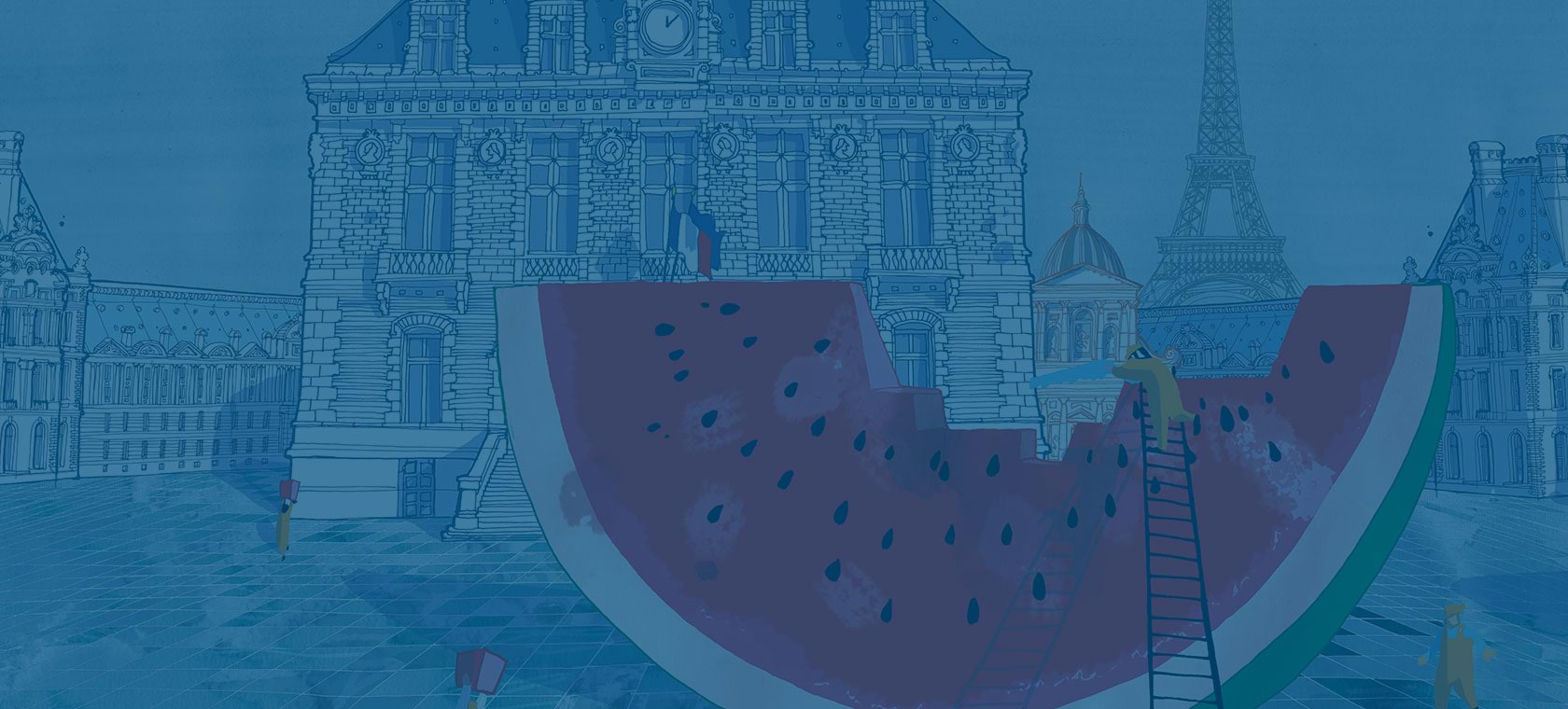
My brother had it all figured out right away. He realised after finishing his studies he could make a go of it on Tinos, the island of the Cyclades archipelago where our parents live. Close to Mykonos, Tinos is as beautiful and wild as the former but somewhat less touristy.
My brother Takis lives like a king. He fishes for squid in winter, rents scooters to tourists in summer when he’s not chasing German girls, and savours a glass or two of ouzo with cucumbers when the sun goes down. Not a bad life. Not for me. I wanted to see the world. I managed to build a small forwarding firm with a little luck and a lot of hard work. My 5 heavy-duty vehicles criss-cross Europe’s roads carrying all sorts of goods we export from Greece - yogurt, fish, ceramics, produce.
Whatever needs to travel, Vangelis & Moras Trans delivers it where you want it. It all happened in July 2016. The caller said it was an emergency. ‘There’s a construction site at Vincennes on the outskirts of Paris. The work’s been halted because the quartzite slabs ordered from Greece are still in the Port of Piraeus. They tell us they can’t be loaded. See what you can do’. I’m the curious sort. The first thing I did was to ask for more input about the site. The town-hall square was being repaved. I put the phone down and went to see a couple of engineer friends. They told me the quartzite can only be properly laid with Mapei’s Mapestone system.
The name Mapei made me sit up. It’s an Italian company and has an office right near my warehouse. It’s the best in the business. Then, too, Italians and Greeks are nearly cousins, a bit removed maybe, but still... I called back and was off to Piraeus to see about the quartzite. If you know anything about it, Pireaus is not exactly the place you’d recommend for leisurely tourism. It’s a sprawling Tower of Babel and not without a dangerous corner or two.
Anyway, with not a little help from friends, I finally managed to pull strings and locate the quartzite. A Customs officer told me what happened. Watermelons were causing the delay. They’re green like quartzite but a lot more perishable. The Port authorities had decided that the melons had loading priority all the way through September. The catch was that they never issued an advisory warning. I was on the phone in a second. I located my trucks, had our customers advised of a slight delay in deliveries, got our vehicles in, had them loaded and hopped in too.
We were on the road to France in a couple of days. The caravan was carrying a hundred or so quartzite slabs ready to be laid with Mapei’s Mapestone. It took us only 4 days to get there, including a pit stop at a bar in the 20th Arrondissement for a glass of its famed pastis. When we arrived, everyone was gathered at the edge of the square to greet us: the builder, the architect and Mapei’s mixing silos. It was July the 30th and the heat was unbearable.
I got out of the lead truck and walked slowly over to the welcoming committee, saying “Who do all these water-melons belong to?” The look on their faces instantly hard-ened, their eyes directing a flash of anger at me. It turned to a smile almost as quickly when they saw the quartzite slabs being unloaded.
They thought they knew I’d been kidding. Not quite. My timing was perfect. I went to a small fridge in a truck, took out a watermelon, a knife and gave everyone a slice. Even to the mixers full of Mapestone. They’re mad about watermelon.
* Mapei France S.A. established its headquarters in the country at Saint-Alban, Toulouse, in 1989. The facilities include administrative and sales divisions, a training school and, most im-portantly, a topnotch R&D laboratory. Mapei France S.A. also opened a production plant at Montgru-Saint-Hilaire, a suburb north of Paris, and one at Saint-Vulbas, not far from Lyon, in 2014. Not far from the Mapestone square, it recently began op-erations of a Specifications Centre, the latest addition to the other Italian training centres in Milan, Rome, Lecce, Sassuolo and to the one in London.
